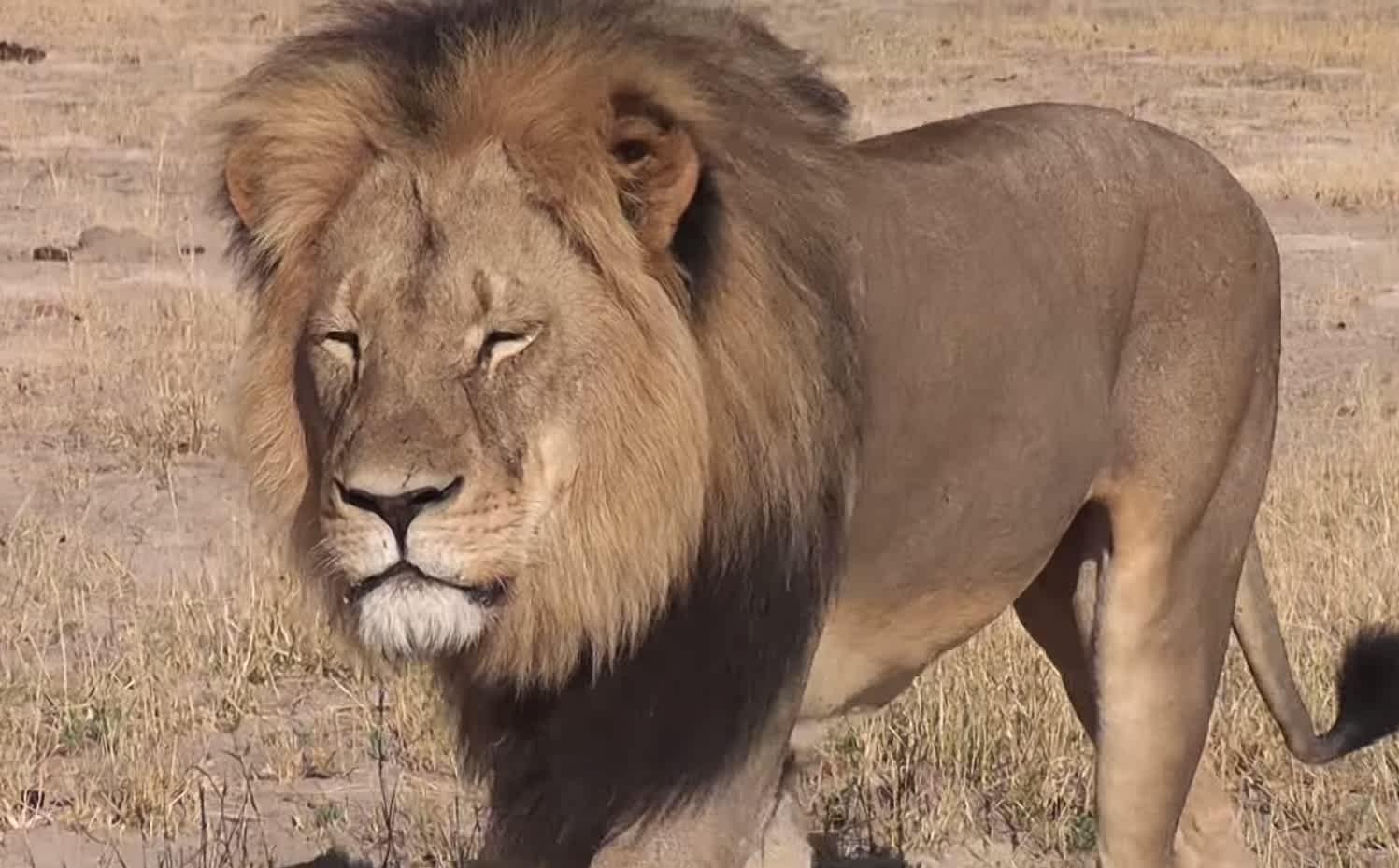Was Cecil the Lion Poached? Minnesota Dentist Becomes Target of Outrage
OutdoorHub Reporters 07.29.15

Almost overnight, a Minnesota dentist by the name of Walter Palmer became one of the most sought-after and reviled men in the world. Palmer was identified by several sources earlier this week as the man who killed Cecil the lion, a popular black-maned male in Zimbabwe’s Gwayi Conservancy.
Palmer is reportedly being sought by the Zimbabwe Parks and Wildlife Authority, which has already charged Palmer’s guide, Theo Bronchorst, and a landowner, Honest Trymore Ndlovu.
“Theo Bronchorst, a professional hunter with Bushman Safaris is facing criminal charges for allegedly killing a collared lion on Antoinette farm in Gwayi Conservancy, Hwange district on 1 July 2015,” stated the agency in a press release. “The lion named ‘Cecil’ was well known and regularly sighted by tourists in the Main camp area of Hwange National Park. It is alleged that the hunter connived with the Antoinette land owner, Mr. Honest Trymore Ndlovu to kill the lion. Ongoing investigations to date, suggest that the killing of the lion was illegal since the land owner was not allocated a lion on his hunting quota for 2015. Therefore, all persons implicated in this case are due to appear in court facing poaching charges.”
The identity of the man who actually shot the lion was unknown until Tuesday, when several news outlets ousted Palmer as individual who fatally wounded the lion with a bow and arrow. Since then the dentist has found himself the target of overwhelming criticism, including protests at his practice and thousands of negative reviews flooding his Yelp page.
“He has robbed the world of something important,” wrote one reviewer. “Why support his hideous habits and self-important, cruel attitude by giving him one dime of your money?”
Some were willing to come to Palmer’s defense and give him the benefit of the doubt. Palmer claimed that he believed everything was perfectly legal and that his guides had secured all the proper permits to take the lion.
“I had no idea that the lion I took was a known, local favorite, was collared and part of a study until the end of the hunt. I relied on the expertise of my local professional guides to ensure a legal hunt,” he wrote in a prepared statement to press on Tuesday. “I have not been contacted by authorities in Zimbabwe or in the U.S. about this situation, but will assist them in any inquiries they may have.”
As a man who has taken game all across the world—including another lion in a previous hunt—some are willing to believe that Palmer may have been duped or was simply ignorant of what was going on. However, critics assert that the methods used to bring in the lion suggest that Palmer knew the pursuit of Cecil was illegal all along.
According to the Zimbabwe Conservation Task Force (ZCTF), a conservation group operating in the country, Palmer and Bronkhorst pusued the lion at night by luring the animal out of Hwange National Park, where the animal was protected, by tying an animal carcass to their car and driving to land owned by Ndlovu. The organization then claimed that Palmer shot the lion with a bow and arrow but merely wounded the animal, allowing it to suffer for about 40 hours before tracking it down and dispatching it with a firearm. While the men field dressed the lion, they discovered a GPS collar as part of a project funded by Oxford University. Conservationists believe that the group may have tried to destroy the collar. The lion’s remains were later confiscated by the Zimbabwe government.
“Walter Palmer apparently paid USD $50 000 for the kill and we assume Theo Bronkhorst received this money. Cecil, who was known all over the world would have earned millions of dollars just from sightseeing. There was apparently no quota or licence for a lion to be killed in this area,” stated the ZCTF.
Watch a video of Cecil before his death:
https://youtu.be/H4a2htZ2wIQ
Exotic big game hunting in Africa remains a controversial subject, but is legal in many countries. It provides wildlife agencies with much-needed funds for conservation efforts. These hunts, which are generally very expensive, are conducted with oversight and support from government agencies.
Earlier this year an American hunter paid $350,000 to legally hunt an endangered black rhino in Namibia. While the hunt still drew a fair amount of backlash, the harvest was fully supported and approved by Namibia’s Ministry of Environment and Tourism, which will be using the money to pay rangers, buy equipment, and combat poachers. The rhino was also chosen because it was an older male beyond its prime breeding age and considered a danger to younger rhinos.
Cecil, however, was a valuable tourist attraction and left behind dozens of cubs, which are now in danger.
“The saddest part of all is that now that Cecil is dead, the next lion in the hierarchy, Jericho will most likely kill all Cecil’s cubs so that he can insert his own bloodline into the females. This is standard procedure for lions,” stated the ZCTF.
The BBC reported that Palmer has a history of violating hunting regulations. In 2006 Palmer illegally killed a black bear in Wisconsin and made false statements to officials, earning him a $3,000 fine and one year of probation. Palmer’s current whereabouts are unknown, but he has issued a statement apologizing for the death of Cecil.
“Again, I deeply regret that my pursuit of an activity I love and practice responsibly and legally resulted in the taking of this lion,” he wrote.
CNN reported that lion hunting in Zimbabwe is currently legal with approval from government officials. There was a complete moratorium on lion hunting between 2005 and 2008 in the Gwayi Conservancy, but hunting was restarted in 2009.
Palmer has been receiving death threats, which you can learn about in the below video.

